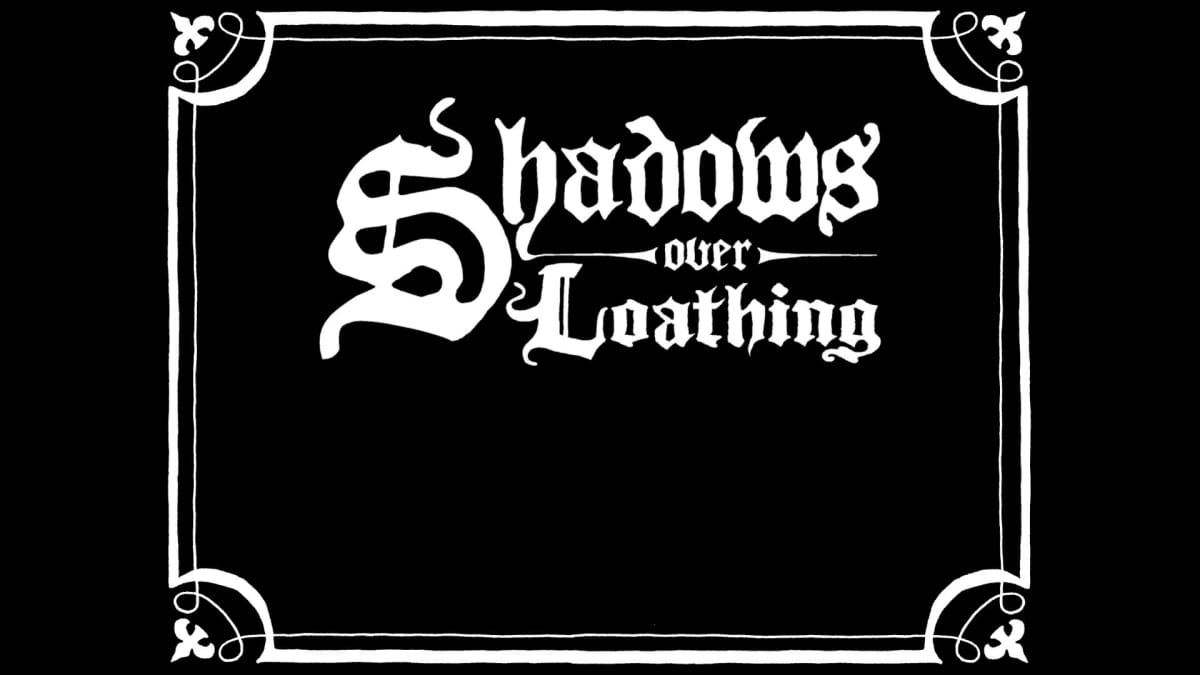The charm of Shadows Over Loathing is apparent within seconds of starting the game. It is an extended parody of the works of H.P. Lovecraft and the pulp horror genre as a whole. It manages to take those stories' existential themes about dark gods beyond mortal ken, as well as the early 20th-century environment around it, and reshape them into an extended, absurd, well-told joke. It also helps that the joke is built around a solid turn-based RPG.
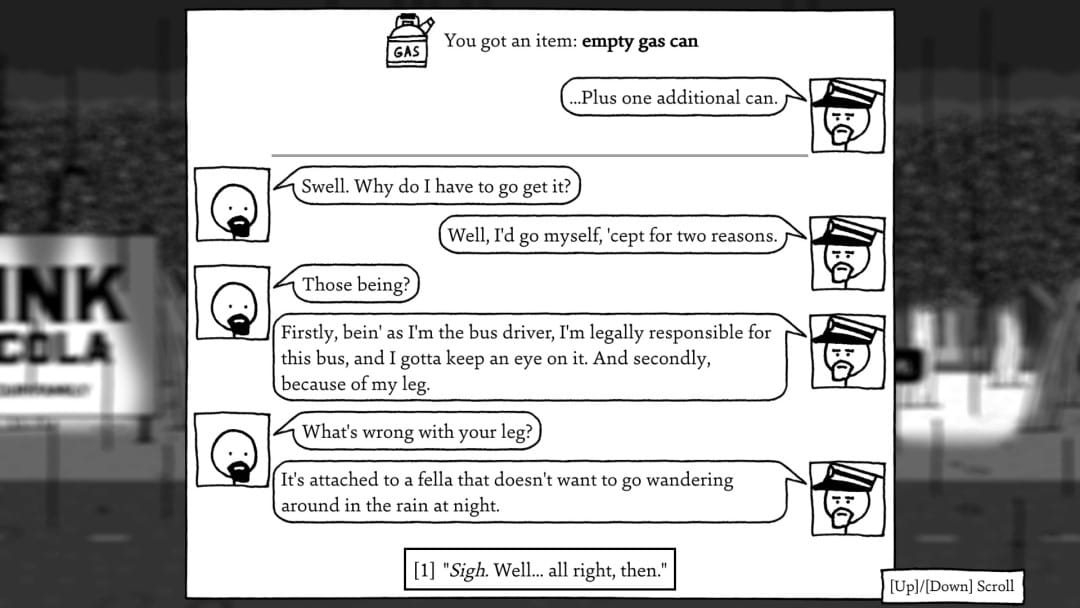
Getting Out of the Cool Air
Shadows Over Loathing starts with a conventional gothic horror hook. Your character receives a letter from their eccentric uncle, asking you to take over the family business of locating and preserving cursed artifacts. Shortly after you arrive, it is revealed that your uncle, as well as several artifacts, have gone missing. In addition, as you look for more clues about your uncle and retrieve artifacts, you keep having mysterious dreams, foreshadowing a dark fate for the realm of man by some unseen force.
Somehow despite that sinister synopsis, this game got a lot of hard laughs out of me. Part of this has to do with Shadows Over Loathing's presentation. Asymmetric has plenty of experience taking familiar genres tropes and presenting them in sillier terms. When one of your titles includes Kingdom of Loathing, one of the oldest ongoing web-based MMORPGs, you tend to develop an in-house style.
That style continues to shine here. The entire game is populated by basic stick figures. The environments looks like they were drawn up by an old black-and-white newspaper strip artist. Finally, the dialogue and level design are peppered with deadpan asides, visual absurdities, puns, slapstick, and some light tongue-in-cheek jabs at videogame logic.
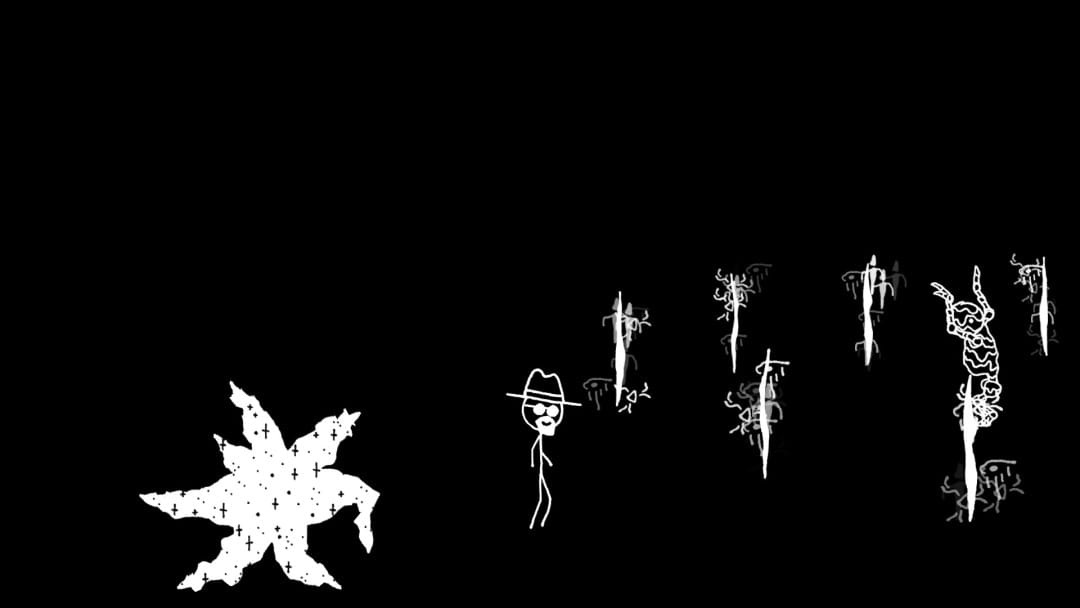
A great example of this is in Shadows Over Loathing's opening. You start the game wandering into a diner with a newspaper covering your face from a breeze. No one can understand you since your voice is muffled. The waitress even says she won't serve you until you get your face sorted out. It isn't until you bumble your way into the bathroom and remove the newspaper that you can customize your character.
This kind of humor persists throughout Shadows Over Loathing and leads to some of its most memorable setpieces. Personal highlights include a section where I had to go through a college program in order to get into a secure location, leading to me dealing with robots and having to teach a class on deadly spiders... with live demonstrations.
It must also be noted that the game's humor manages to blunt the problematic elements of Lovecraft's work. There are still plenty of vignettes that reference certain works – Cool Air, Color Out of Space, Shadows Over Innsmouth, etc. – but the focus is more on doing a send-up of cosmic horror. The jokes are not in bad taste, nor are they at anyone's expense, and that is to be commended.
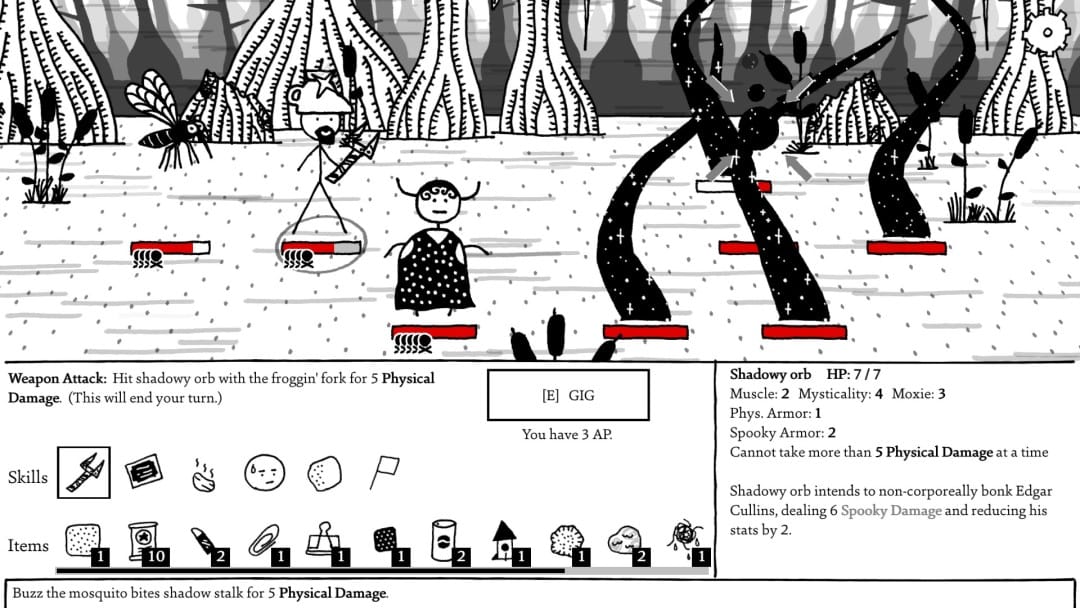
Is There A Cheese Wizard In The House?
But even if Shadows Over Loathing's skewering of cosmic horror doesn't fully click for you, the underlying gameplay has some depth. In the broadest strokes, it is a classic turn-based RPG. While you do pick a starting class, the game is flexible and allows for different playstyles. Muscle determines how much you can lift as well as your skill with melee weapons. Moxie determines your persuasion, acrobatic ability, and your skill ranged weapons. Finally, Mysticality determines your overall intelligence and how much power you can coax out of magical kitchen utensils.
These approaches will shape your combat playstyle. Mysticality builds will allow you to use powerful spells more effectively or summon helpful familiars. Moxie excels at crowd control by peppering multiple opponents at once. Finally, Muscle is all about hitting things as hard as possible.
And if you wish to play Shadows Over Loathing like a conventional RPG, there is nothing stopping you. You can grind out random encounters for XP and resources and just steamroll the next challenge. Not only is it a perfectly viable playstyle, there is just enough depth to the combat to keep your interest. In addition to managing different types of elemental resistances you also have to manage your Action Points. Action Points are what you use when you want to perform multiple actions in a turn. There's plenty of items and skills that can add or take away Action Points as you play. This is important since it helps make each fight feel like a combat puzzle than just a matter of numbers.
But miraculously, it is entirely possible to get through Shadows Over Loathing without fighting at all. Every single mission and side quest in the game has multiple paths to success. Better still, a lot of these alternate paths, either based on your stats or light immersive sim elements. There were multiple occasions where I skipped a hard battle just by switching out my loadout and exploiting a lateral solution. A great example is when I was able to sneak into a gatorman outpost by getting my Moxie and Stench Armor as high as possible and sneaking in through the sewer tunnels. The game even has a Pacifist Mode toggle in the options menu if you want to avoid combat altogether, turning the entire experience into a stat-based adventure game.
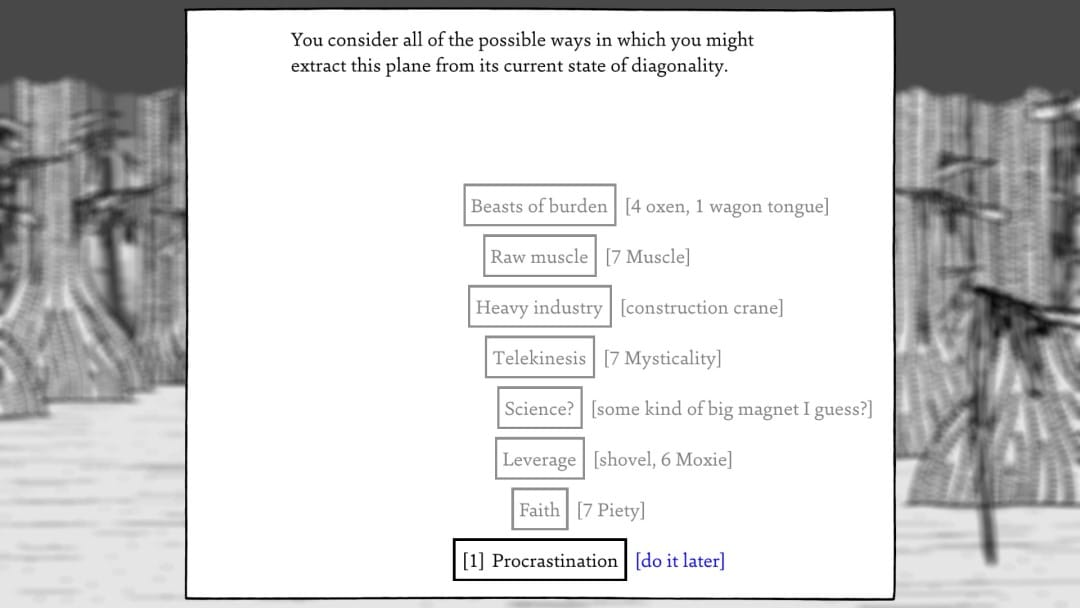
Not all of the environmental puzzles are created equal, however. For every clever use of a coat hanger or a well-lit match, there was at least one puzzle that felt esoteric for its own sake. The stand out was one near the middle of the game where I actually had to look up Latin phrases in order to proceed. In a world where Google searches exist, it wasn't a dealbreaker, but it still caught me off guard.
If there is a catch to Shadows Over Loathing's bespoke and considerate design, it's mostly in quality-of-life and length. By modern RPG standards, the game clocks in at about 18 hours, not including side quests. There is replay value with the different gameplay approaches, as well as multiple endings, but there are no manual saves, only checkpoints.
This is both a blessing and a curse for Shadows Over Loathing. On the one hand, it allows each of the game's five chapters to maintain sharp pacing. Challenges continue to escalate and the comedy doesn't outstay its welcome. But aside from one or two extra playthroughs, there isn't a lot of substance to the game otherwise.
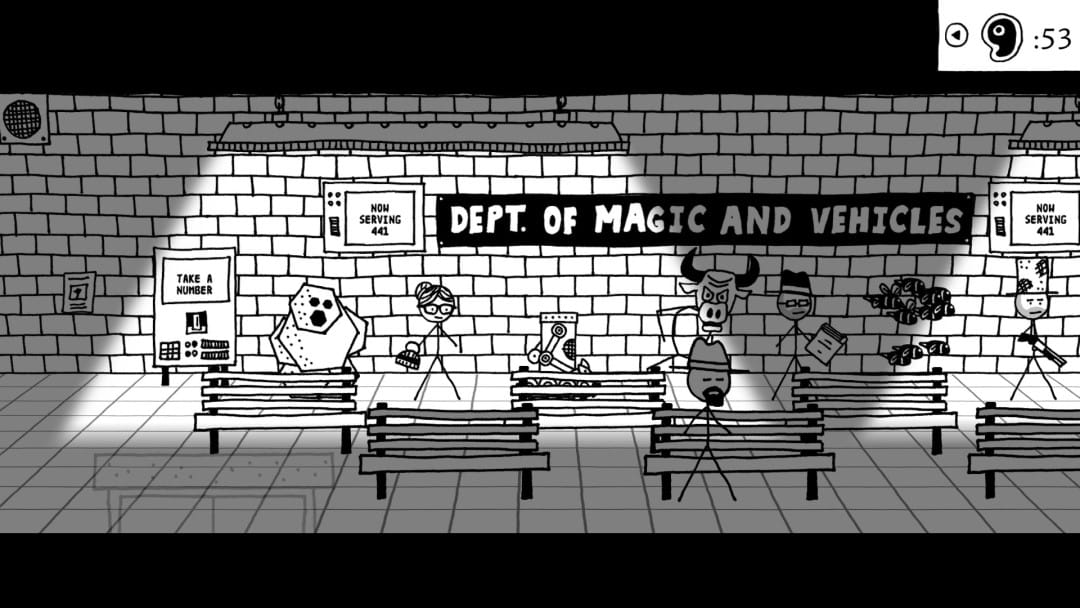
Shadows Over Loathing | Final Thoughts
Despite a short run time and a few odd puzzles, I do recommend Shadows Over Loathing. The jokes land more often than miss. The ways in which the Lovecraft mythos get lampooned or get mixed around got some chuckles. The gameplay manages to balance both rewarding turn-based combat and clever environmental puzzles. And Asymmetric's minimal farcical style helps pack the whole experience with irreverent delight.
TechRaptor reviewed Shadows Over Loathing on PC with a copy provided by the publisher.
Review Summary
Pros
- Clever Puzzle and Quest Design
- Rewarding Turn-Based Combat
- Funny DIalogue and Story Beats
Cons
- Short Runtime
- Minor Headscratching Puzzles
Have a tip, or want to point out something we missed? Leave a Comment or e-mail us at tips@techraptor.net
